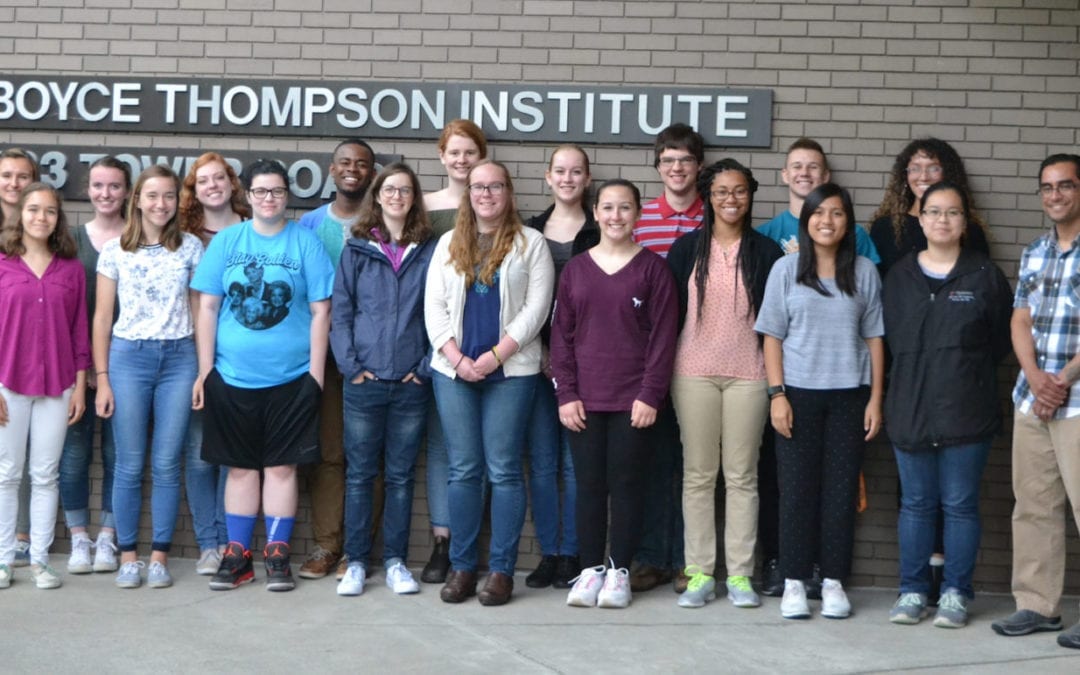
Motivated, curious, and eager to discover, BTI’s 2017 Plant Genome Research Program (PGRP) interns are ready to dive into a 2+ month transformative experience that will prepare them for their future career.

BTI reaffirms its commitment to innovation and discovery in the life sciences, upholding our founder’s vision that new knowledge promises new solutions for food security and planetary health.
 Most of us know the story of how spinach makes Popeye the Sailor Man strong, but what make spinach stronger? Dr. Chen Jiao explains how a new spinach genomic sequence discovered by BTI’s Fei Lab can help increase spinach’s resistance to drought and...
Most of us know the story of how spinach makes Popeye the Sailor Man strong, but what make spinach stronger? Dr. Chen Jiao explains how a new spinach genomic sequence discovered by BTI’s Fei Lab can help increase spinach’s resistance to drought and...
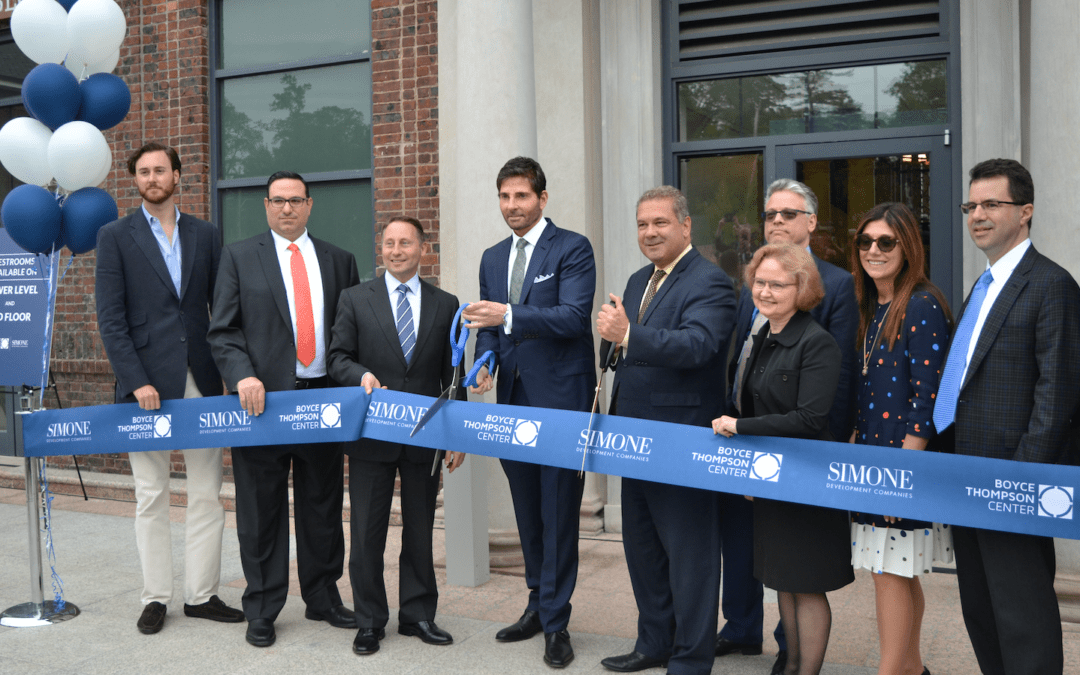
After the Boyce Thompson Institute relocated to Ithaca, NY in 1978, its original building and grounds in Yonkers, NY laid vacant for more than 40 years. A remnant of its original purpose, the building was left devoid of its most basic vestige: life. That all changed on May 23rd, 2017, with the ribbon-cutting ceremony and official opening of the new Boyce Thompson Center.
As we work our way through October, we’re preparing for an exciting new end of the year “Unrestricted Futures” annual fund campaign, as well as the upcoming November board meetings and fall dinner. The Development and Communications teams are reaching the culmination...
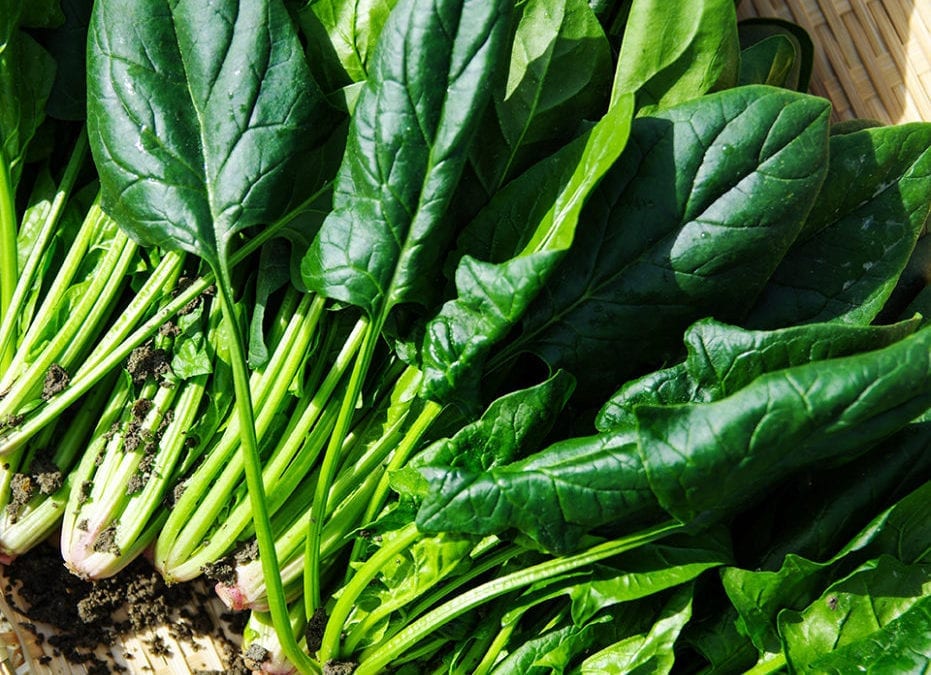
Today in Nature Communications, researchers from BTI and the Shanghai Normal University report a new draft genome of Spinacia oleracea, better known as spinach. Additionally, the authors have sequenced the transcriptomes (all the RNA) of 120 cultivated and wild spinach plants, which has allowed them to identify which genetic changes have occurred due to domestication.
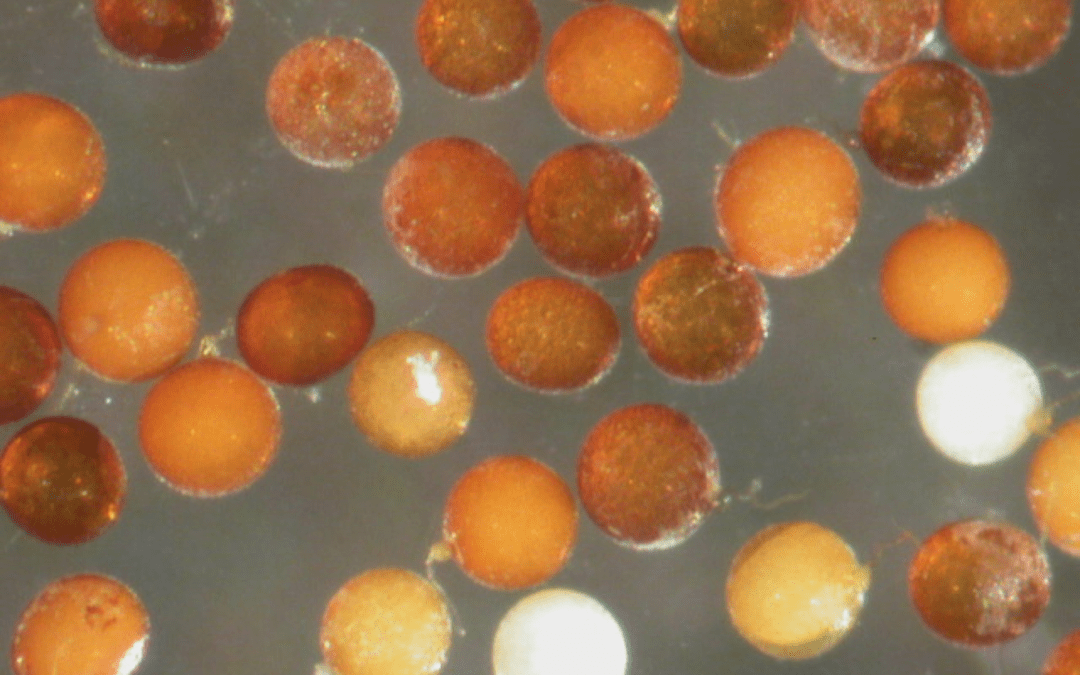 Dr. Armando Bravo of Maria Harrison’s lab shares new research on the storied relationship between fungi and plant roots.
Dr. Armando Bravo of Maria Harrison’s lab shares new research on the storied relationship between fungi and plant roots.
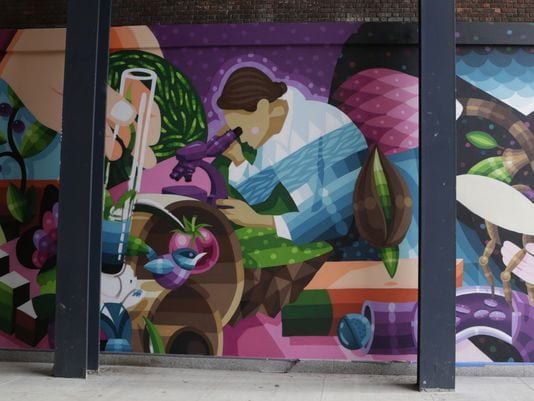
A beautiful graffiti mural has been completed at the old Boyce Thompson Institute in Yonkers, NY by artist Eelco van den Berg from The Netherlands.
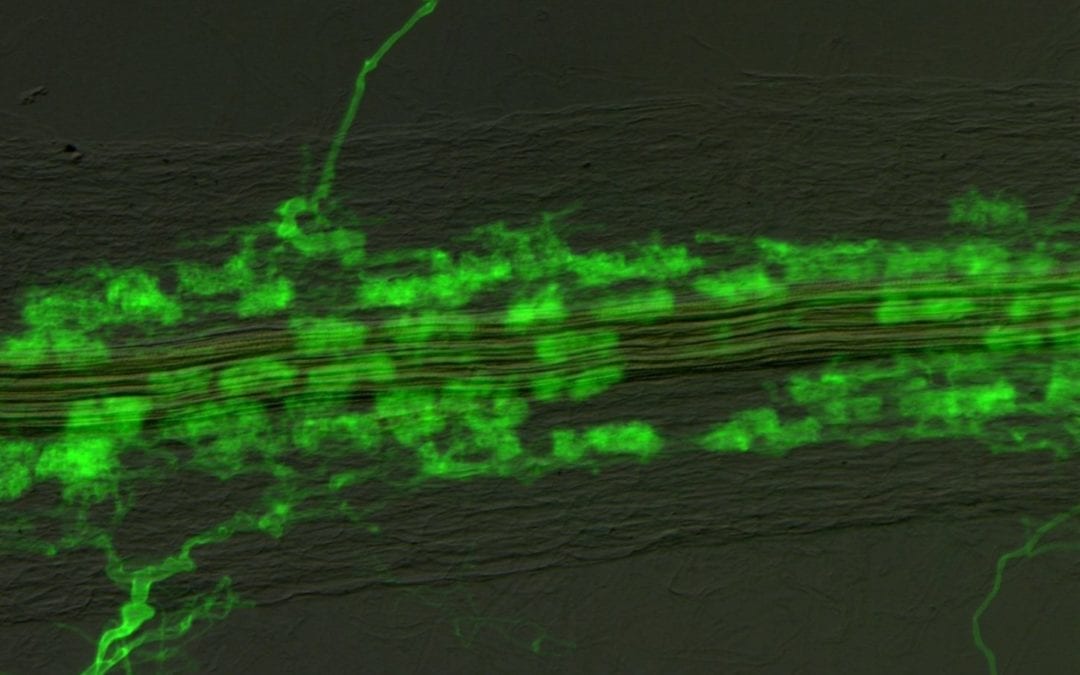
Researchers from the Harrison lab at BTI have identified a transcriptional program that drives arbuscule degeneration during AM symbiosis. This regulation of arbuscule lifespan has likely contributed to the 400MY stability of the symbiosis by preventing the persistence of fungal cheaters.
Researchers from the labs of Dr. Maria Harrison at the Boyce Thompson Institute and Dr. Peter Dörmann at the University of Bonn have produced the first experimental evidence to suggest that AM fungi also get lipids from the plant. AM-induced FatM and RAM2 may play specific roles in the biosynthesis of 16:0 βMAG, which cannot be produced by the fungus, providing a clue to understanding the obligate nature of AM fungi.
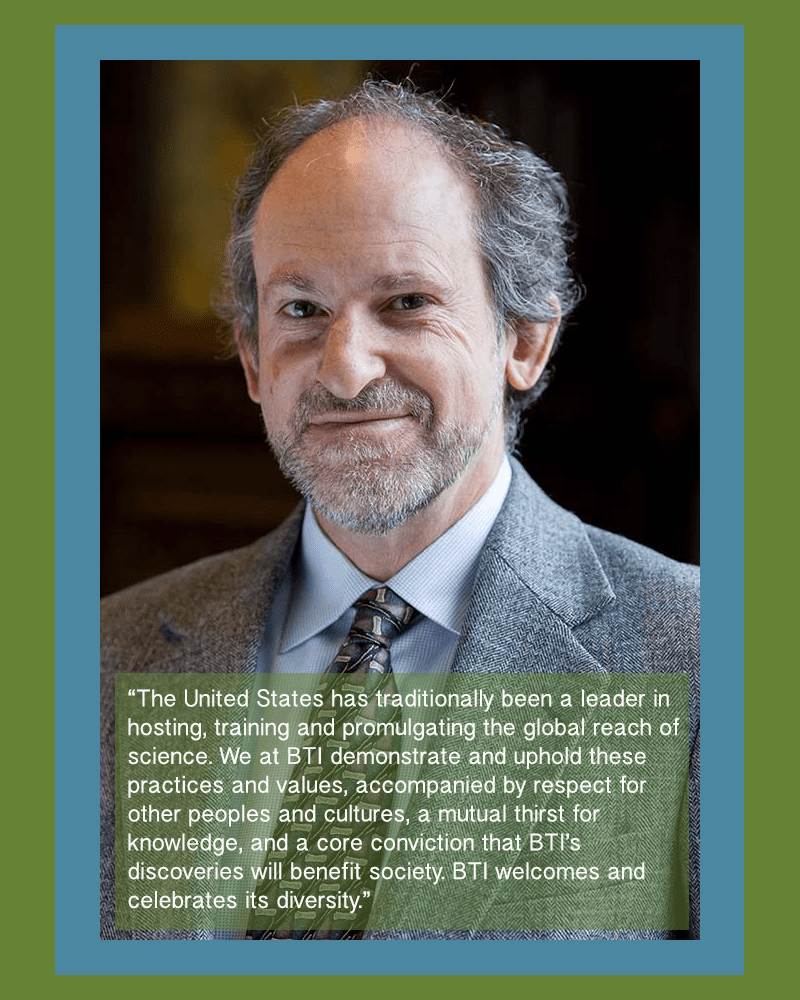 “BTI is an international institution. The global reach of science, and its ability to traverse and dissolve cultural and national boundaries in the pursuit of knowledge and its applications, count among our core strengths. BTI scientists and staff hail from more...
“BTI is an international institution. The global reach of science, and its ability to traverse and dissolve cultural and national boundaries in the pursuit of knowledge and its applications, count among our core strengths. BTI scientists and staff hail from more...
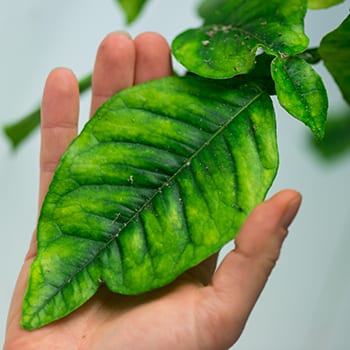
New research finds that the Asian citrus psyllid responds to the citrus greening bacterium by producing an oxygen-transporting protein called hemocyanin. The protein not only turns them blue, but suggests that they are trying to fight off the infection.
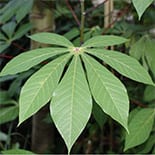
Cassava geneticist Ismail Yusuf Rabbi from the International Institute of Tropical Agriculture (IITA) in Ibadan, Nigeria visited BTI and Cornell University last week to discuss his ongoing collaboration with NextGen Cassava.

The offices of data scientists at BTI emptied out earlier this month as a contingent of researchers flew to San Diego for the 25th annual Plant and Animal Genome Conference.

Michelle Cilia has been selected to receive a Presidential Early Career Award for Scientists and Engineers (PECASE), which recognizes outstanding, government-funded scientists who show great potential for becoming leaders in their field and for expanding the frontiers of scientific knowledge.
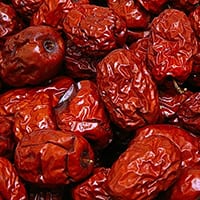
The genome will serve as a resource for jujube breeders working on improved cultivars, as well as for researchers working on other fruit trees, such as apples.

Penelope Lindsay, a Cornell University graduate student in Plant Biology in the lab of BTI Professor Maria Harrison, has been awarded a 2-year fellowship from the USDA National Institute of Food and Agriculture.
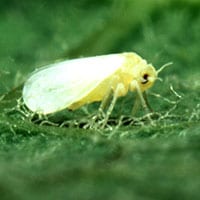
Researchers in the Fei lab have sequenced the genome of the whitefly, an invasive insect responsible for spreading plant viruses worldwide, causing billions of dollars in crop losses each year.
BTI board member and Director of the New York State Agricultural Experiment Station at Cornell University, Susan Brown, shares her wisdom on all things related to apples.

The NextGen Cassava project, a global partnership led by Cornell University that includes BTI Associate Professor Lukas Meuller, will now include cassava breeders from Tanzania.

Science policy work is just one of the ways that Ph.D.s can use their training and passion for science to benefit the public.

Cultivating a disregard for day length enabled humans to introduce tomatoes to the Mediterranean region.

The collaboration works with breeding centers around the world to develop tools to make the process of adding a trait into an existing, high-yield crop variety more efficient.
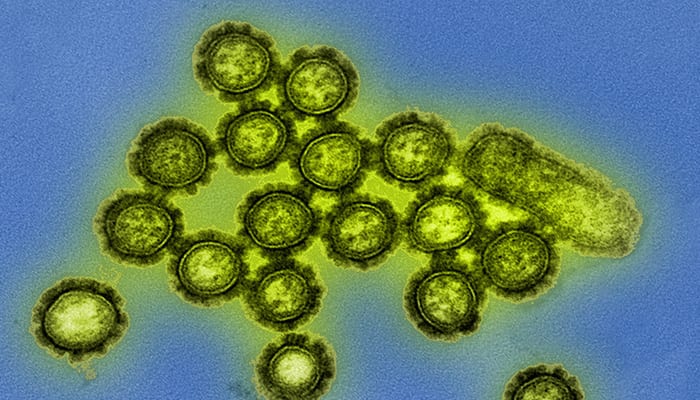
The Fei lab releases VirusDetect, an automated bioinformatics pipeline that efficiently detects viruses and viroids from large-scale, small RNA datasets.
Citrus growers are uniting to save their groves from citrus greening disease and to fund research into solutions, but growers in California face different challenges than those in Florida, report BTI and USDA researchers.

“Food security is a mixture of all the different aspects of agriculture. It’s not just growing the food,” said Proctor. “It’s not just planting something in the ground – there is a lot more to it.”

Rooting powders, commonly used by growers and home gardeners, had their beginnings in the labs of BTI in the 1930s.
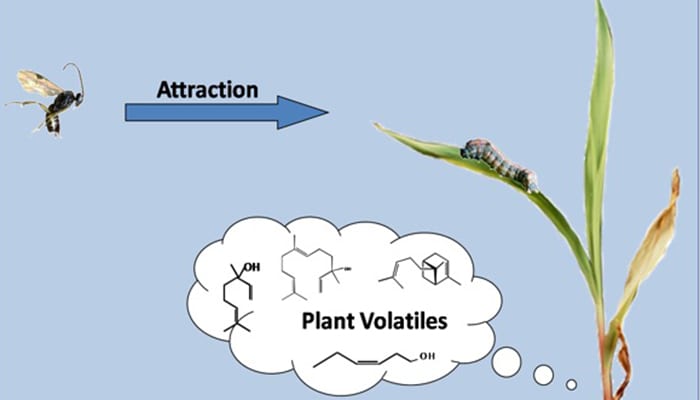
Insect damage triggers volatile compounds that attract caterpillar-killing wasps.
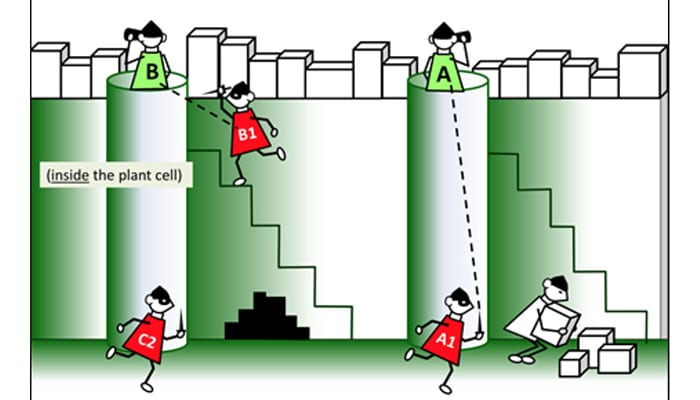
Researchers in the Martin lab develop a new technique to study the arms race between plants and the bacteria that infect them.
Drawing on her background in plant pathology and biotechnology, Heard advises agricultural startups, with the goal of launching companies that will bring new innovations to agriculture.
 Professor Klaus Apel can pinpoint the exact time he chose to be a plant scientist. As a young person, Apel was seriously interested in birding and so he entered the University of Hamburg to study biology, with a special emphasis on zoology. But in a year-long,...
Professor Klaus Apel can pinpoint the exact time he chose to be a plant scientist. As a young person, Apel was seriously interested in birding and so he entered the University of Hamburg to study biology, with a special emphasis on zoology. But in a year-long,...

The recent Symposium explored plant science topics including molecular biology, atmospheric sciences, plant breeding and soil and crop sciences.

The five-year grant is given to innovative, early career scientists to support high-risk research with the potential to make significant contributions to the field.

A new paper from the Cilia lab reports that the Asian citrus psyllid mounts an immune response against the bacterium that causes citrus greening disease – a discovery that may be useful for developing a treatment against the devastating epidemic.

Professor Greg Martin and colleagues received an NSF grant to pursue research into resistance against bacterial speck disease in tomatoes.
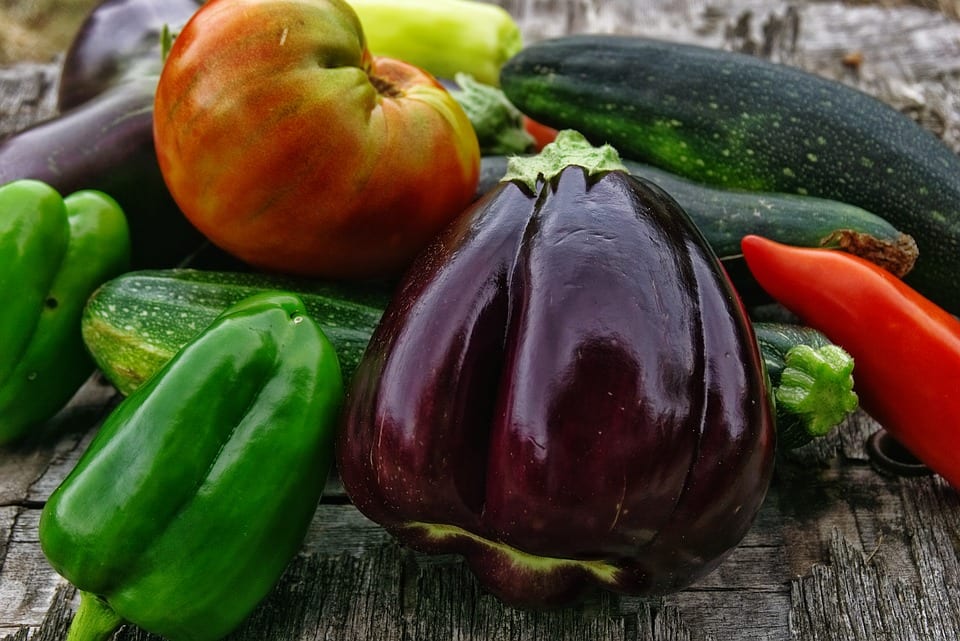
Many BTI researchers will present their latest research at the 13th annual SolGenomics Conference, Sept. 12-16 in Davis, California.
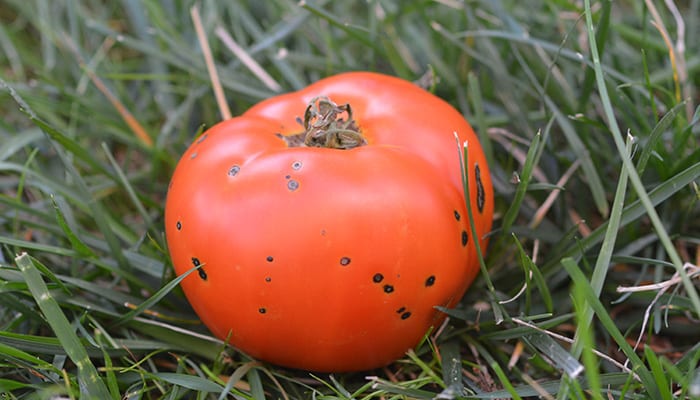
Researchers at BTI and Virginia Tech find a new bacterial detector in tomatoes that could help other crop plants to be more disease resistant.

A longtime board member, Sheinerman has used her background in science and investment banking to help BTI evolve and grow.

An improved protocol cuts the time it takes to modify a tomato’s genome from 17 weeks to 11, accelerating research into ways to breed more productive crops.

It has been a busy summer. Read up on our latest news here.

Tune in to BTI’s David Stern on People Behind the Science: Growing Our Understanding of Photosynthesis to Improve Plant Metabolism

BTI’s Gary Blissard and Michael Kanost of Kansas State University led a team of 114 researchers from 50 institutions and 11 countries to sequence the genome of this important insect model.

Summer interns complete their research experience by presenting talks and posters to the BTI community.

The company, founded by BTI board member Greg Galvin, supports high quality, local STEM education programs.

An international group of computer programmers gathered at BTI to create a single interface that will connect databases from breeding programs worldwide

Student interns cap off their summer experience with research presentations.

The former President and CEO of the Boyce Thompson Institute and pioneer of nitrogen fixation research passed away August 2 at the age of 82.
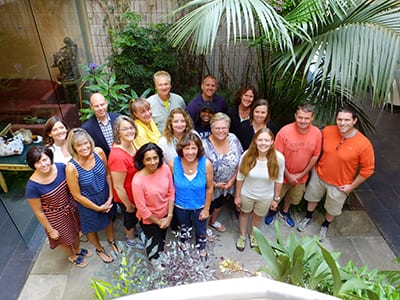
BTI’s Curriculum Development Projects in Plant Biology summer institute exposes STEM educators to new research on agriculture, plant biotechnology and bioenergy.

Works by photographer Susan C. Larkin and poet Timothy Larkin, now on exhibit. Please join us on September 29, 2016 at 5:00 pm for an art and science program celebrating this exhibit.

Works by artist Christina Coleman, now on exhibit. Please join us on September 29, 2016 at 5:00 pm for an art and science program celebrating this exhibit.










































